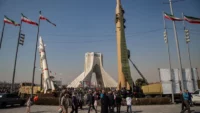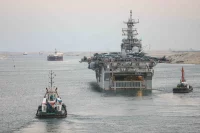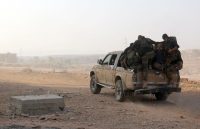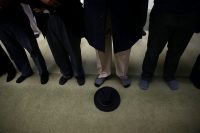
What Iran wants — and fears
The crises wracking the Middle East are simultaneously independent flashpoints and also a relatively integrated regionwide offensive by Iranian-backed armed gangs.
It’s sometimes unclear how much control Iran has over these militias in Iraq, Syria, Lebanon, Gaza, Yemen and elsewhere.
Although Iran’s influence operates just beneath the earthquakes and tremors shaking the region, much like the Biden administration, Iran is serious about wanting to avoid a broader war.
Both are like Goldilocks, needing just enough but not too much.
But there are key differences. The United States is a status quo power — upholding security and stability is its regional brand.… Seguir leyendo »






